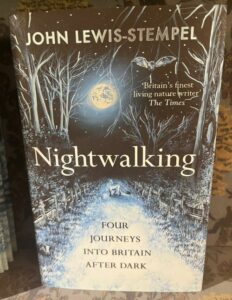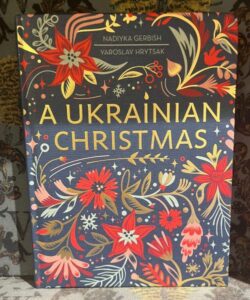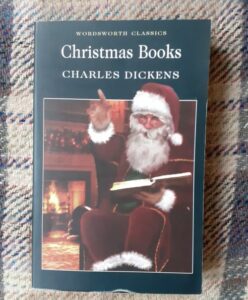by Carolyn Thomas.
While my Christmas ‘to-do’ list is probably much like anyone else’s, I do have one particular and selfish tradition of my own… which is to buy myself a book. This is, after all, the season of goodwill to everyone – so why shouldn’t I include myself in that?
The ‘tradition’ harks back to one especially boring Christmas when I returned home from university and, upon opening my presents, discovered there was not one book amongst them. I always got something to read – I was the weird child who once asked for a dictionary – but this year something had gone wrong. Pre-internet and Kindles, once I had finished the book I’d brought with me, I was left with no alternative but to plough through a pile of my father’s old Reader’s Digests. (Younger readers will need to Google that!)
Ever since then I determined that I would always have something new, and possibly festive, to read at Christmas. Even as a busy mother of young children, when opportunities for time to myself were few and far between, I wouldn’t be without some fresh pages to open, along with the chocolates.
So what to choose? Well often at Christmas I will go for a collection of short stories. Although I’m not generally a big fan of the format, finding them frequently unsatisfactory with their limited plots and character development, they come into their own at this busy time of year when opportunities to read must be snatched between interruptions from guests and social commitments. A good short story can deliver a lot of satisfaction by transporting the reader to a whole new world in a single sitting. They often include a twist, which if it’s not too unlikely, can make a powerful impression. And best of all they lend themselves to being read aloud – something of a lost art for adults these days but definitely worth a try if you can find an audience .
One of my favourite festive collections is Jeanette Winterson’s Christmas Days: 12 Stories and 12 Feasts for 12 Days which, as the title suggests, mixes fiction with some rather esoteric recipes. But if your appetite for food has been more than satisfied by your Christmas dinner, then there are plenty of other titles to try. The Penguin Book of Christmas Stories springs to mind, and Kate Atkinson (one of my favourite authors) threw her hat into the ring a couple of years ago with Festive Spirits – three short stories.
 And don’t forget the most famous novella of all, Dickens’ A Christmas Carol – a mainstay of the season as a book, a film, and a stage play. See review below. Its enduring success inspired Dickens to write several other, now lesser-known, stories, which fans of the original could try – The Chimes, The Cricket on the Hearth, The Battle of Life, and The Haunted Man and the Ghost’s Bargain can often be found bundled together as Dicken’s ‘Christmas Books’.
And don’t forget the most famous novella of all, Dickens’ A Christmas Carol – a mainstay of the season as a book, a film, and a stage play. See review below. Its enduring success inspired Dickens to write several other, now lesser-known, stories, which fans of the original could try – The Chimes, The Cricket on the Hearth, The Battle of Life, and The Haunted Man and the Ghost’s Bargain can often be found bundled together as Dicken’s ‘Christmas Books’.
For those with the leisure time, why not go the other way entirely and opt for an epic read? Christmas offers a great opportunity, second only to a summer holiday, to really get into a novel. Is there a long book you’ve always meant to read? For me it’s Vikram Seth’s 1993 novel A Suitable Boy. Coming in at 1349 pages of closely written text, it’s quite the tome, but offers a piquant antidote to the saccharine of the season. It’s a family saga set in a newly independent and partitioned India during the 18-month run up to the country’s first post-independence election in 1951-52. This was a turbulent time as people attempted to cross the new border between Hindu-majority India and the newly established Muslim-majority country of Pakistan, in both directions. The book covers all sorts of arising conflict and tensions, from the political to the personal, during this period of huge change.
The ‘suitable boy’ in question is the potential husband for 19-year-old Lata Mehra, a literature student, who is keen to escape her arranged marriage and choose a partner for herself.
Finally, these three titles have caught my eye recently and are highly recommended by book sellers. Could be good last-minute gift ideas, for others if not for yourself!
Nightwalking – Four Journeys into Britain After Dark by John Lewis-Stempel.
Described on the cover as ‘Britain’s finest living nature writer’, Lewis-Stempel takes readers on four atmospheric walks through the seasons, discovering the nocturnal life along the way.
 A Ukrainian Christmas by Nadiyka Gerbish and Yaroslav Hrytsak.
A Ukrainian Christmas by Nadiyka Gerbish and Yaroslav Hrytsak.
This beautifully illustrated book about the culture, traditions, reflections, and celebrations of the Ukrainian people at Christmas – originally published in Ukraine in 2020 – has been re-issued in English, including a new foreword, following the Russian invasion.
The Story of Art Without Men by Katy Hessel.
Billed as a long overdue revisionist history of art, redressing the balance in a world which has side-lined women for too long, the only problem I can see with this book is that the injustice highlighted may bring on more indigestion than your Christmas pudding.
For more ideas see the recommendations below from other In Common contributors and then get yourself to a bookshop….
Vegan Christmas by Gaz Oakley, recommended by Charlotte Ndupuechi:
.”More than 70 amazing recipes for the festive season by avant-garde vegan Oakley.”
**
Everyone in This Room Will Someday be Dead by Emily Austin, recommended by Spring Wise:
“This is the tale of a ‘morbidly anxious young woman [who] stumbles into a job as a receptionist for a Catholic church, where she hides her atheist lesbian identity, and becomes obsessed with her predecessor’s mysterious death’.
It’s my favourite book I read this year and I think it would make a good Secret Santa present or stocking filler. It’s got very broad appeal, it’s funny, it’s poignant, it’s got a mystery and a twist, and it’s really beautifully written without being overly literary, so nice and accessible and not a ‘hard work’ read.”
**
The School for Good Mothers by Jessamine Chan, recommended by Sarah Groszewski:
“This is my favourite book of the year; a fabulous example of why we should never judge a book by its cover. The blush pink front, along with a title reminiscent of ‘mum lit’, might be off-putting for those in search of a more challenging read, but this dystopian novel is thought-provoking, engaging, and very subtly forces us to confront society’s vastly different expectations of mothers and fathers.
The story follows Frida, a single mother who makes one parenting mistake, and faces severe, long-term consequences when she is sent away to be trained to be a Good Mother. As the story develops, we see a stark contrast between the treatment of mothers and fathers, and explore themes of single parenting, desperation, sexism, and prejudice.
The story is gripping, creating a knot of anger and anxiety in the reader’s stomach as you wonder why other characters cannot see what is plainly obvious to the reader, and also a little shame knowing that most of us wouldn’t meet the unrealistic standards of parenting expected in the training centre.
Although this book sits within the dystopian genre, there are many parallels with real life family law and social work, which make it all the more terrifying.”
***
 A Christmas Carol by Charles Dickens, recommended by Chris Richards:
A Christmas Carol by Charles Dickens, recommended by Chris Richards:
“I should probably warn for spoilers. But this book was first published in 1843 and sold out its first run of 6000 copies in six days, since when it has never been out of print… so not knowing the story is sort of on you! The 19th December 2022 will be the 179th anniversary of A Christmas Carol by Charles Dickens.
This year I read A Christmas Carol for the first time. I started it in the blazing heat of the summer on my break at work. I found the copy in a small independent bookshop while on a weekend break on the Isle of Wight, all the classic titles were £2 each. I couldn’t pass up an opportunity like that! So I picked up a couple of well-known titles that I had not yet read. I have seen and enjoyed many, many, of the film adaptations over the years, the first being Disney’s Mickey’s Christmas Carol. Then Scrooged with Bill Murray opened my pre-teen eyes to the eternal themes of kindness, generosity and how these qualities were easy to enact but also to ignore, when you do not make the effort to see them. Also the moment Murray is punched in the face by Carol Kane, the Ghost of Christmas Past – I laughed in shocked delight!
Throughout the 90s and 00s the Christmas Special became a staple in sitcom series like The Simpsons and The Fresh Prince to name but two of the hundreds I’m sure are out there. The three visiting spirits motif was recycled and celebrated over and over again. But my favourite adaptation will always be The Muppet’s Christmas Carol – they did it best (although perhaps it’s not quite as good as their rendition of Treasure Island with Tim Curry but what could be?!).
What I finally found in the book, which none of the screen versions seemed to capture, was the love Ebenezer Scrooge had known and cherished and lost in his youth, and the dread and fear he feels for his own spirit and future after being visited by Jacob Marley. The emotional journey and sympathy he inspires just didn’t seem to translate well to screen, but it heightened the true cruelty of Scrooge having to listen to the contempt he inspired in his own serving staff and what they felt justified in doing or saying when he had died. I can honestly say I was in tears.
The power of Dickens writing is how he weaves the mystical in with the reality of lives lived in urban London in the 19th Century. Readers can now take for granted this skill as living memory accepts his style as standard. It is now considered ‘literature’ and taught in schools, not just a Christmas socialist-leaning story for those of the middle or upper classes who rarely considered their position in society and what impact the entire system had on those at the bottom. The lesson of gratitude, wrapped in guilt with a dollop of self-reflection/loathing – the true meaning of Christmas!
I should have known that I’d love the book and connect with all the characters in a more meaningful way than ever before. As all we readers know, the book is always better than the film.”
- In Common is not for profit. We rely on donations from readers to keep the site running. Could you help to support us for as little as 25p a week? Please help us to carry on offering independent grass roots media. Visit: https://www.patreon.com/incommonsoton

